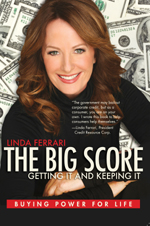A “soft” credit check is just prior to closing on your mortgage. This is to ensure that no new debt was obtained during the mortgage process and that the information on your final application that you sign at closing still represents your financial scenario.
A soft credit check does not impact your credit scores. It will disclose any new debts and credit inquiries. If there are changes to your credit revealed from the soft credit check, be prepared to explain and document whether or not new credit was obtained. Even if the credit card you decided to open during the transaction has not been used, you will still need to provide documentation regarding this new potential debt.
A “hard” credit check may take place if your existing credit report is set to expire before closing. Different than a soft credit check, the mortgage company will order a new credit report and the terms of your mortgage will be impacted by what the new report discloses, including any changes to your credit scores. This includes your current pricing of the loan and qualifying.
It’s really best to not obtain any new credit during the mortgage process and avoid applying or inquiring for any credit. Even when the creditor states “six months same as cash” or “this won’t impact your credit” – don’t buy it! If you do feel you need to make a purchase just prior or during the mortgage process, please discuss it with your mortgage professional first. A new car or big screen tv for your home may delay the purchase of your new home.
 I recently met with a couple who had relocated to the Seattle area and were ready to make an offer on a home. They’re very qualified with their income stability and enough savings to put a twenty percent down payment on their next home. What surprised them was the credit report.
I recently met with a couple who had relocated to the Seattle area and were ready to make an offer on a home. They’re very qualified with their income stability and enough savings to put a twenty percent down payment on their next home. What surprised them was the credit report. 








Recent Comments